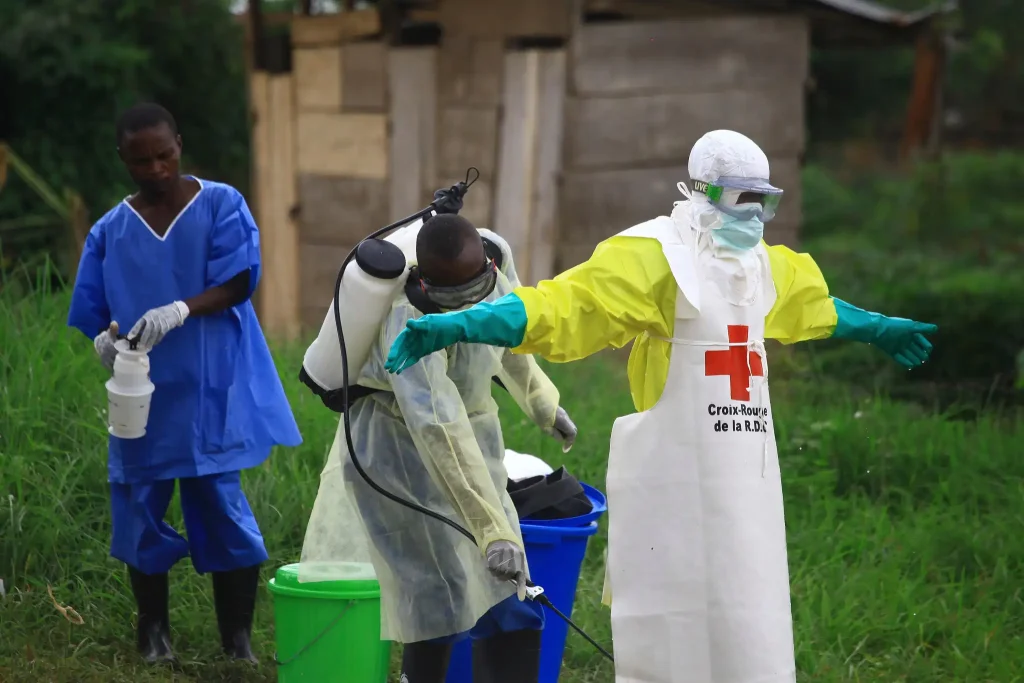A fresh Ebola outbreak in the Democratic Republic of the Congo (DRC) is raising alarm worldwide. Identified in Kasai Province, the virus is spreading rapidly, prompting swift action from health authorities to contain it.
How the Outbreak Began
The outbreak was confirmed on September 4, 2025, after a 34-year-old pregnant woman in Boulapé became ill with symptoms including fever, vomiting, and severe bleeding. She passed away in late August due to organ failure.
Laboratory tests identified the Zaire Ebola strain, leading the DRC’s Ministry of Health to declare a public health emergency.
Current Developments
As of September 6, 2025, health officials report 32 suspected cases and 15 deaths, with a fatality rate exceeding 50%.
Among the deceased are four healthcare workers. Most cases are concentrated in Boulapé, with one case reported in Mweka. The high mortality rate highlights the outbreak’s severity.
Response Efforts Underway
The World Health Organization (WHO) and DRC health officials are taking immediate steps to curb the outbreak. Key actions include:
- Medical Resources: Deploying protective equipment and mobile labs to support diagnosis and treatment.
- Vaccination Program: Administering 2,000 doses of the Ervebo vaccine to safeguard healthcare workers and close contacts of infected individuals.
- Financial Aid: WHO allocating $500,000 to strengthen containment efforts.
Local officials are encouraging residents to report suspected cases by calling the toll-free number 151 and to practice strict hygiene measures to prevent further spread.
Why This Outbreak Is Alarming
Analysis indicates the outbreak originated from a new animal-to-human transmission, not linked to previous outbreaks. This suggests Ebola remains active in wildlife, posing a constant risk of re-emergence. The loss of healthcare workers underscores the urgent need for enhanced safety protocols to protect frontline responders.
Regional Vigilance
Neighboring countries, including Nigeria, are on high alert. The Nigeria Centre for Disease Control (NCDC) has ramped up border surveillance, increased hospital monitoring, and launched public awareness campaigns to prevent the virus from crossing borders.
Broader Context
The DRC faces additional challenges, including cholera outbreaks, malnutrition, and widespread displacement.
Strained healthcare systems complicate efforts to manage Ebola. This outbreak highlights the critical importance of early detection, rapid response, and international collaboration to combat infectious diseases.






